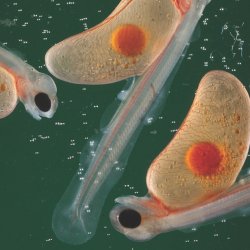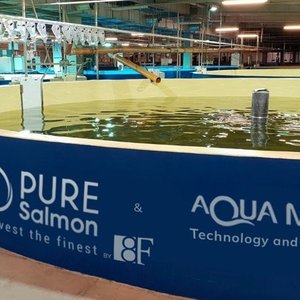As aquaculture production raises, there is a need to replace fishmeal and fish oil ingredients by plant-based ingredients to increase the sustainability of the industry. High levels of plant-based ingredients are known to negatively impact fish performance in species such as rainbow trout and genetic selection can enable the improvement of these diets.
A strain of rainbow trout (Oncorhynchus mykiss) at the Hagerman Fish Culture Experiment Station from the University of Idaho, USA, has undergone a long-term selection program for growth on a plant-based diet (HGM strain). Researchers compared fish from the F8 generation to a commonly available commercial strain selected for growth (CSS) to investigate the potential differences in oral tolerance, intestinal microbiota richness and overall growth when fed a 40% SBM diet.
Triplicate tanks of each strain were fed diets containing either 0% or 40% SBM over 12 weeks in a factorial design. Fish were weighed every four weeks and subsampled to assess gene expression in the distal intestine. Fish were also sampled at the beginning and end of the study to assess gut histology and characterize intestinal microbiota.
At twelve weeks, the HGM strain showed superior growth on both diets. Gene expression related to gut health and inflammation show reduced inflammatory response in the HGM fish compared to the CSS strain. Significant effects of strain and diet were also observed on metrics of gut microbiota diversity.
Researchers suggest that the selection for growth on a plant-based diet drives selection for increased oral tolerance for dietary soybean meal inclusion.
Check out the study here.













